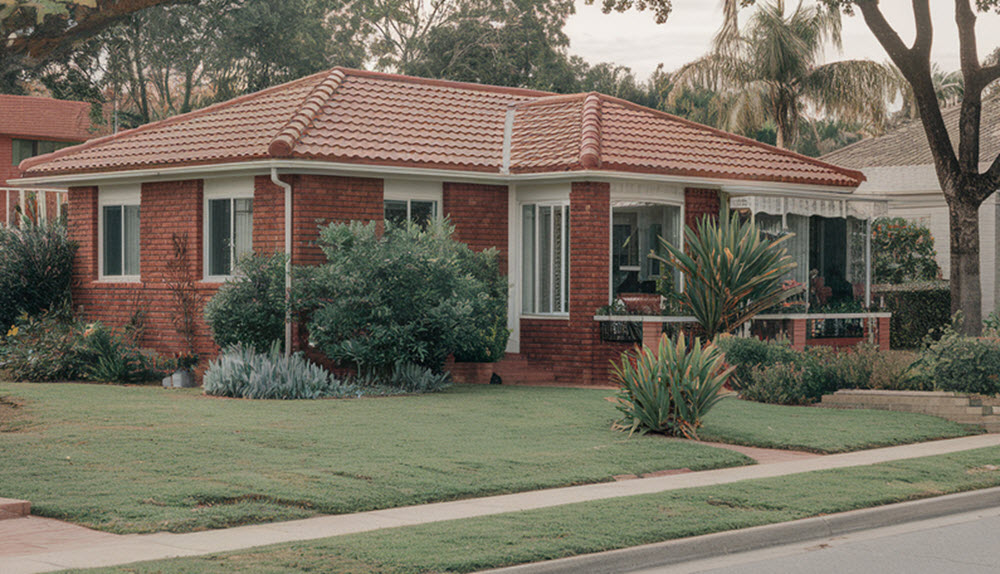How to find cheap houses to buy

Finding a low-priced house to buy can be a great way to enter the real estate market without breaking the bank. Whether you’re looking for a starter home, a rental property, or just a bargain, there are a few key strategies to help you find affordable choices. Below, we will take a look at some tips that can be helpful when you are hunting for a great deal.
Finding a house that suits you budget may require patience, persistence, and a willingness to explore many different options. The key is being prepared, doing your research, and being ready to act quickly when the right opportunity presents itself. With the right strategy, you can increase your chances of finding a home that fits both your needs and your wallet.
Emerging Neighborhoods
If you’re dead set on finding a house within a specific city, you might need to be open to exploring neighborhoods that are still developing or less popular. These areas usually offer lower prices compared to more trendy downtown locations and fully-developed suburbian subdivisions. The trick is identifying places that have the potential for growth—where you can buy a home cheap now and watch its value rise in the future. You may for instance want to look for neighborhoods where new businesses are opening, infrastructure improvements are underway, or there’s talk of new schools or public transportation. An area becoming more pedestrian-friendly and more filled with trees and other planted greenery is generally a good sign. Gentrification and redevelopment can turn once-overlooked areas into desirable communities, making it a smart investment for the future. You’ll get in early at a lower price, and you may see your home’s value increase over time.
When cities grow in population, e.g. due to a better job market, it can sometimes be rather easy to spot areas that are likely to become more sought after soon. If the city centre is the most sought after location right now, you can expect most neighborhoods near the core to become desirable soon, unless you can identify some serious impediment that would scare people away from a certain neighborhood near the core. In cities where the old city centre has fallen into decay, you may need to use another approach, as real estate development and gentrification may be focused on other parts of the city – especially if the city centre is also weighted down with red tape that hinders revitalization projects.
Fixer-Uppers
As you probably know already, buying a home that needs some love and elbow grease can be a great way to find a bargain – if you are willing and able to put in the work. Fixer-uppers are often priced much lower than move-in-ready homes because they require renovations. If you’re handy or don’t mind hiring contractors and oversee them, buying a fixer-upper could make it easier to find a home within your price range. Be sure to factor in the cost of repairs and renovations when budgeting. Sometimes what seems like a great deal can turn into a money pit if you underestimate the cost of getting the house up to code.
Working closely with an experienced and reputable home inspector is recommended. It can cost you a pretty penny to get a home properly assessed, but it is worth it if it saves you from making an uninformed decision. Some issues are difficult to notice during a normal cursory inspection of a property.
Foreclosures and Auctions
A quick way to find cheap houses is by targeting foreclosures and auctions. When a homeowner defaults on their mortgage, the bank often repossesses the property and sells it at a lower price to close the deal quickly. This means you can sometimes buy a home for significantly less than market value, but you need to be ready and able to act quickly. Foreclosed homes are often listed on real estate websites, or you can find them through local banks and government agencies.
Auctions can be a bit tricky to navigate because you often need to pay in cash or come with pre-approved financing. However, if you’re comfortable with the process and can act quickly, you could land an amazing deal.
One thing to keep in mind: foreclosed homes are often sold “as-is.” This means the previous owners may not have maintained the property well, so be prepared for possible repairs or renovations. Even if you have already bought the property, getting an expert in to inspect and assess it can be a good choice, as it can help you prioritize and do things in the best order. It is not nice to spend time and $$$$$ putting in a new kitchen only to find out soon thereafter that the floor underneath it is bad and needs to be redone.
Use Filters on Real Estate Websites
The internet has made finding cheap houses easier than ever. Real estate websites like Zillow, Redfin, Realtor.com, and Trulia allow you to search for homes within your budget. The trick is using filters to your advantage. Set the maximum price to your budget limit and look specifically for houses listed as “fixer-uppers,” “foreclosures,” or “motivated sellers.” These keywords often indicate properties that can be bought below market value.
Don’t forget to set up alerts on these sites for new listings. This way, you’ll be among the first to know when a property that matches your criteria hits the market, giving you a leg up on the competition.
It is a good idea to research areas, common house types, etcetera in advance. When you do get a notification, you will already know the basics and do not have to start from scratch when trying to evalutate if this property is of any interest to you or not.

Work with a Real Estate Agent Specializing in Bargain Homes
Real estate agents have insider knowledge about local markets and can help you find houses that are not yet widely advertised. Look for agents who specialize in helping buyers find deals, whether through foreclosures, short sales, or distressed properties. They may have access to listings you wouldn’t find on your own, or they might know homeowners who are willing to sell for less to close a deal quickly.
With that said, it can also be a good idea to cultivate professional relationships with more generalized real estate agents, since they can let you know when something that doesn´t really fit their broader profile become available – a bargain house for someone like you to snatch up.
Check Out “For Sale By Owner” (FSBO) Listings
Many homeowners choose to sell their houses themselves, without hiring a real estate agent, which can result in lower prices. These properties are often listed as “For Sale By Owner” (FSBO). Since sellers don’t have to pay an agent’s commission, they might be more willing to negotiate on price or sell for less than what you’d find in traditional listings.
It can also be easier to negotiate a quick deal (provided you already have your financing in order), since the sellers might be reluctant to host a series of open houses, go through multiple offers, etcetera.
You can find FSBO listings on sites like Craigslist, Facebook Marketplace, and FSBO-specific websites. However, buying directly from a homeowner means you may need to handle more of the paperwork yourself, or hire a real estate lawyer to ensure the transaction goes through correctly. Do not skimp on this. In many countries, real estate transactions have to conform to a very special set of rules, and not doing the transaction correctly from the start can cause a lot of problems down the road.
Look for Off-Market Deals
Off-market properties, also known as “pocket listings,” are homes that aren’t actively advertised but are still for sale. Homeowners might be looking to sell quietly or quickly without going through the hassle of listing their property publicly. You can find off-market deals by networking with real estate agents, attending local real estate investment groups, or even by sending letters to homeowners in areas where you’d like to buy, asking if they’d be interested in selling. Networking can be very useful in these situaitons. While it can take more legwork to find these opportunities, off-market deals often result in cheaper prices because there’s less competition from other buyers.
If you have your eyes on a specific neighborhood (e.g. one where you have family or one where you already own real estate and wish to add to your portfolio) it is a good idea to let local people know that you are looking and also not in a hurry. Some people might not start thinking about selling their property until you plant that seed in their mind, and realizing that they could sell without having to go through the whole process of involving real estate agents can make it easier for them to take the plunge. Of course, having a stellar reputation in the neighborhood for being a straight forward buyer of real estate can help you a lot in these situations.
Timing is Key
The time of year can play a role in how much you pay for a house. Typically, the real estate market slows down during the winter months and around the holiday season. With fewer buyers on the hunt, sellers may be more motivated to negotiate and offer lower prices. If you can be flexible with your timing, shopping during the off-season might help you find a cheaper deal.
On the other hand, homes listed in the spring and summer tend to attract more competition, which can drive prices up, especially when it comes to houses with gardens. Keep an eye on market trends in your area to determine the best time to make your move.
Negotiate Like a Pro
Never be afraid to negotiate. Whether you’re buying from a private seller or through a real estate agent, there’s almost always room to haggle on the price. If the house has been on the market for a while or the seller is in a hurry to close, you may have even more leverage to negotiate a lower price. If the seller is unwilling to lower the price, consider negotiating for other things like closing costs, repairs, or appliances to sweeten the deal. A house owner who is downsizing and moving to an appartment might not be able to budge on the price, but would be willing to throw in a well-filled garden shed with a lawn mover, a snow blower, etcetera.
This article was last updated on: October 8, 2024








